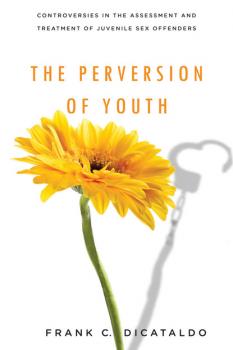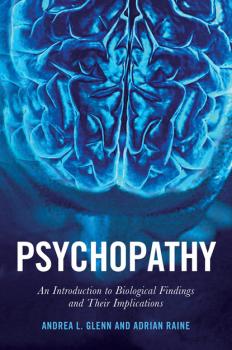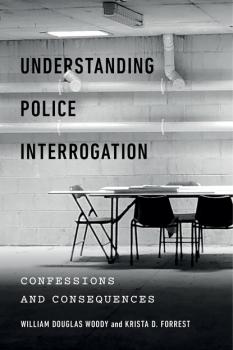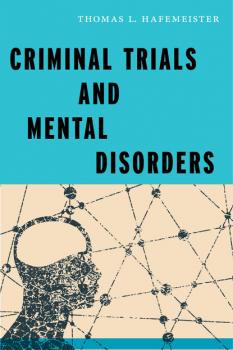Psychology and Crime
Скачать книги из серии Psychology and CrimeGender, Psychology, and Justice
Reveals how gender intersects with race, class, and sexual orientation in ways that impact the legal status and well-being of women and girls in the justice system. [b][/b]Women and girls’ contact with the justice system is often influenced by gender-related assumptions and stereotypes. The justice practices of the past 40 years have been largely based on conceptual principles and assumptions—including personal theories about gender—more than scientific evidence about what works to address the specific needs of women and girls in the justice system. Because of this, women and girls have limited access to equitable justice and are increasingly caught up in outdated and harmful practices, including the net of the criminal justice system. Gender, Psychology, and Justice uses psychological research to examine the experiences of women and girls involved in the justice system. Their experiences, from initial contact with justice and court officials, demonstrate how gender intersects with race, class, and sexual orientation to impact legal status and well-being. The volume also explains the role psychology can play in shaping legal policy, ranging from the areas of corrections to family court and drug court. Gender, Psychology, and Justice provides a critical analysis of girls’ and women’s experiences in the justice system. It reveals the practical implications of training and interventions grounded in psychological research, and suggests new principles for working with women and girls in legal settings.
The Perversion of Youth
Over the past two decades, concern about adolescent sex offenders has grown at an astonishing pace, garnering heated coverage in the media and providing fodder for television shows like Law & Order . Americans’ reaction to such stories has prompted the unquestioned application to adolescents of harsh legal and clinical intervention strategies designed for serious adult offenders, with little attention being paid to the psychological maturity of the offender. Many strategies being used today to deal with juvenile sex offenders—and even to define what criteria to use in defining «juvenile sex offender»—do not have empirical support and, Frank C. DiCataldo cautions, may be doing more harm to children and society than good. The Perversion of Youth critiques the current system and its methods for treating and categorizing juveniles, and calls for a major reevaluation of how these cases should be managed in the future. Through an analysis of the history of the problem and an empirical review of the literature, including specific cases and their outcomes, DiCataldo demonstrates that current practices are based more on our collective fears and moral passions than on any supportive science or sound policy.
Psychopathy
The last two decades have seen tremendous growth in biological research on psychopathy, a mental disorder distinguished by traits including a lack of empathy or emotional response, egocentricity, impulsivity, and stimulation seeking. But how does a psychopath’s brain work? What makes a psychopath? Psychopathy provides a concise, non-technical overview of the research in the areas of genetics, hormones, brain imaging, neuropsychology, environmental influences, and more, focusing on explaining what we currently know about the biological foundations for this disorder and offering insights into prediction, intervention, and prevention. It also offers a nuanced discussion of the ethical and legal implications associated with biological research on psychopathy. How much of this disorder is biologically based? Should offenders with psychopathic traits be punished for their crimes if we can show that biological factors contribute? The text clearly assesses the conclusions that can and cannot be drawn from existing biological research, and highlights the pressing considerations this research demands.
Understanding Police Interrogation
Uses techniques from psychological science and legal theory to explore police interrogation in the United States Understanding Police Interrogation provides a single comprehensive source for understanding issues relating to police interrogation and confession. It sheds light on the range of factors that may influence the outcome of the interrogation of a suspect, which ones make it more likely that a person will confess, and which may also inadvertently lead to false confessions. There is a significant psychological component to police interrogations, as interrogators may try to build rapport with the suspect, or trick them into thinking there is evidence against them that does not exist. Also important is the extent to which the interrogator is convinced of the suspect’s guilt, a factor that has clear ramifications for today’s debates over treatment of black suspects and other people of color in the criminal justice system. The volume employs a totality of the circumstances approach, arguing that a number of integrated factors, such as the characteristics of the suspect, the characteristics of the interrogators, interrogation techniques and location, community perceptions of law enforcement, and expectations for jurors and judges, all contribute to the nature of interrogations and the outcomes and perceptions of the criminal justice system. The authors argue that by drawing on this approach we can better explain the likelihood of interrogation outcomes, including true and false confessions, and provide both scholars and practitioners with a greater understanding of best practices going forward.
Criminal Trials and Mental Disorders
The complicated relationship between defendants with mental health disorders and the criminal justice system The American criminal justice system is based on the bedrock principles of fairness and justice for all. In striving to ensure that all criminal defendants are treated equally under the law, it endeavors to handle similar cases in similar fashion, attempting to apply rules and procedures even-handedly regardless of a defendant’s social class, race, ethnicity, or gender. Yet, the criminal justice system has also recognized exceptions when special circumstances underlie a defendant’s behavior or are likely to skew the defendant’s trial. One of the most controversial set of exceptions –often poorly articulated and inconsistently applied – involves criminal defendants with a mental disorder. A series of special rules and procedures has evolved over the centuries, often without fanfare and even today with little systematic examination, that lawyers and judges apply to cases involving defendants with a mental disorder. This book provides an analysis of the key issues in this dynamic interplay between individuals with a mental disorder and the criminal justice system. The volume identifies the various stages of criminal justice proceedings when the mental status of a defendant may be relevant, associated legal and policy issues, the history and evolution of these issues, and how they are currently resolved. To assist this exploration, the text also offers an overview of mental disorders, their relevance to criminal proceedings, how forensic mental health assessments are conducted and employed during these proceedings, and their application to competency and responsibility determinations. In sum, this book provides an important resource for students and scholars with an interest in mental health, law, and criminal justice.
Jury Decision Making
While jury decision making has received considerable attention from social scientists, there have been few efforts to systematically pull together all the pieces of this research. In Jury Decision Making Dennis J. Devine examines over 50 years of research on juries and offers a “big picture” overview of the field. The volume summarizes existing theories of jury decision making and identifies what we have learned about jury behavior, including the effects of specific courtroom practices, the nature of the trial, the characteristics of the participants, and the evidence itself. Making use of those foundations, Devine offers a new integrated theory of jury decision making that addresses both individual jurors and juries as a whole and discusses its ramifications for the courts. Providing a unique combination of broad scope, extensive coverage of the empirical research conducted over the last half century, and theory advancement, this accessible and engaging volume offers «one-stop shopping» for scholars, students, legal professionals, and those who simply wish to better understand how well the jury system works.
Deviant and Criminal Behavior in the Workplace
Workplace crimes are never far from the news. From major scandals like Enron to violent crimes committed by co-workers to petty theft of office supplies, deviant and criminal behavior is common in the workplace. Psychological factors are almost always involved when an employee engages in such behavior. Deviant and Criminal Behavior in the Workplace offers insights at the level of the individual employee and also sheds light on the role organizations themselves may play in fostering such criminal behavior. The volume considers psychological factors involved in theft and fraud, workplace violence, employee discrimination, and sexual harassment. It also analyses a number of variables which can influence such behavior including employee personality, employee emotional processes, experience of occupational stress, organizational culture, organizational injustice, and human resource management practices. The book will be of core interest to those interested in the psychology and sociology of work, organizational behavior, and human resource management.






